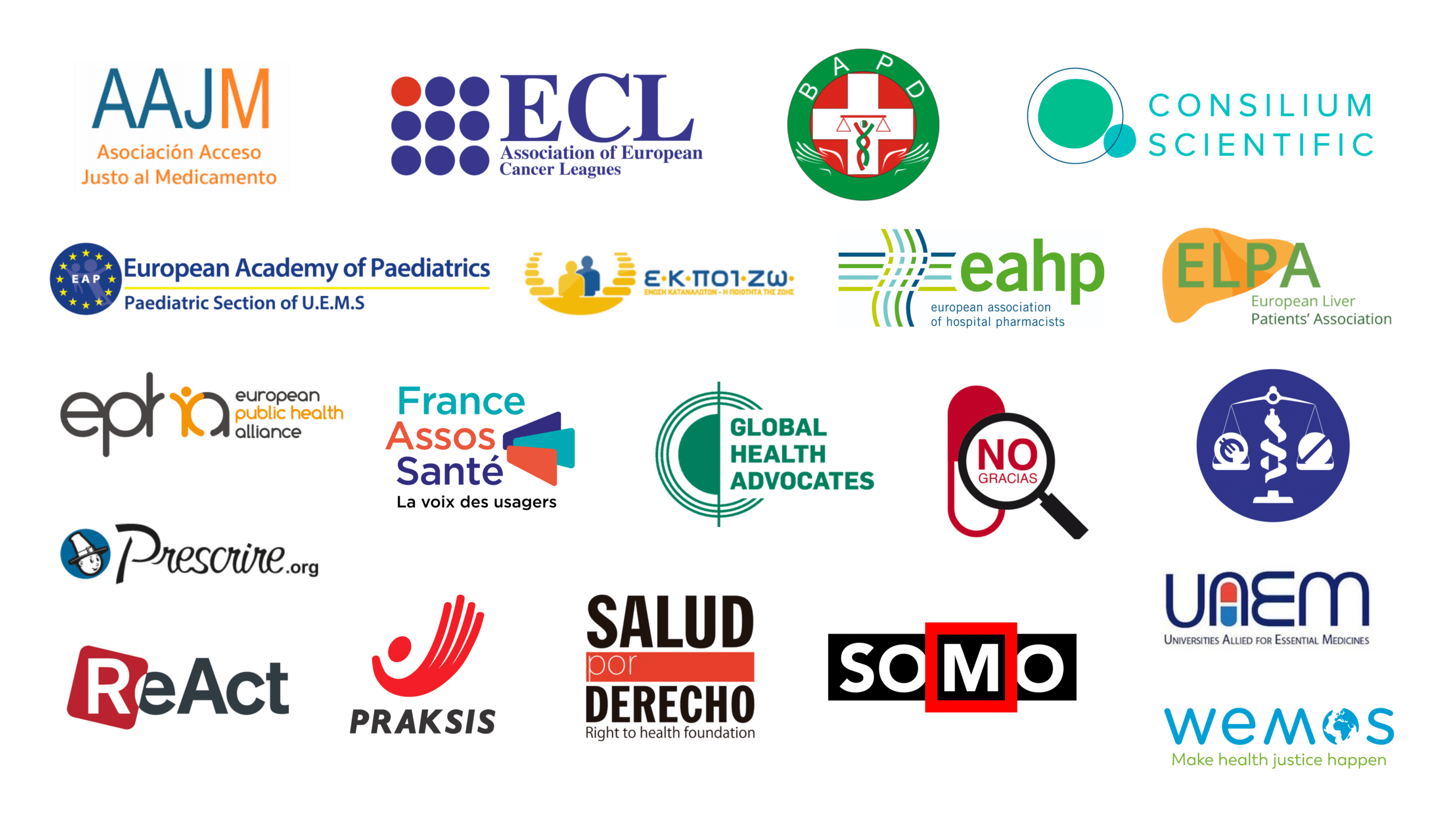Brussels, 9 March 2023
Dear Commissioner Kyriakides,
We, the signatory organisations representing civil society, patients, consumers, and healthcare professionals, join other stakeholders in calling the European Commission to publish the proposed regulation and directive constituting the revised EU pharmaceutical legislation no later than in March 2023.
With sky-rocketing prices of new treatments and continuous increase of medicine shortages across EU Member States, more and more patients are unable to access the medicines they need. The revision of the EU pharmaceutical legislation presents a unique and long-awaited opportunity to ensure the development of new and better treatments while improving the affordability and availability of medicines across Europe. These problems require urgent and effective solutions.
Hence, we call on the Commission to avoid any further delay in the publication of its proposal, which has already experienced repeated delays since its first planned publication in December 2022. It is essential that the file is now officially referred to the co-legislators and that a democratic discussion is initiated, particularly following the leak of an unofficial version to the press. We support the Commission’s intention to propose a lower threshold for data and market protection, and to include measures to prevent and manage medicine shortages more effectively, alongside provisions that contribute to the availability of medicines across Member States.
In line with one of the revision’s objectives of ensuring access to affordable medicines, we welcome the Commission’s intention of rendering the acknowledgement of public funding a requirement for all medicines. However, this objective can only be achieved through the requirement of complete disclosure of information related to public funding, together with complete transparency of R&D costs, and complete price transparency. This will ensure national health systems can negotiate fairer prices with manufacturers, thus improving access and affordability both in Member States and across the Union and ensuring the sustainability of health systems.
Finally, we would also like to raise our concerns about the Commission’s plan to introduce transferable exclusivity vouchers for new antibiotics. Strong reservations have already been voiced by multiple stakeholders, including patients, healthcare professionals, consumers, and several Member States. These vouchers would come at a huge cost to health systems, hampering competition and delaying patient access to cheaper generics and biosimilars in other disease areas. Whilst tackling antimicrobial resistance is urgent, the proposed vouchers are not an adequate solution; alternative evidence-based solutions should be sought, funding a strong intervention of HERA to support the development of new antibiotics is one of them.
We look forward to the publication of the proposal in March. Please note that we will address these points also in a letter to Vice-President Schinas, Vice-President Vestager, Commissioner Breton, and others.
Best Regards,

